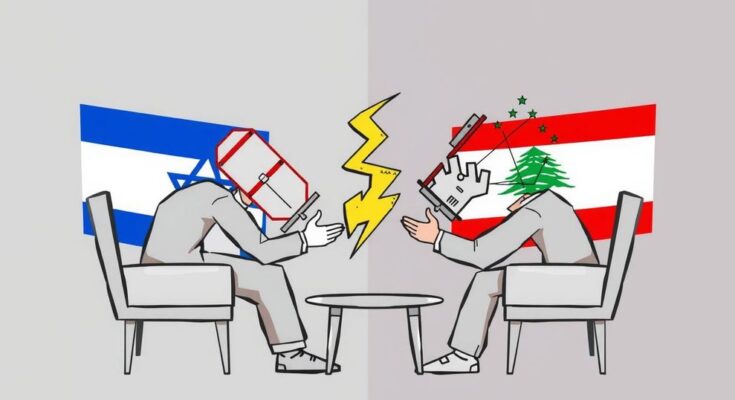Political analyst Bechara Khairallah argues that the optimism surrounding ceasefire initiatives between Israel and Lebanon is unfounded. He highlights the significant role of Hezbollah and Iranian interests as obstacles to a settlement, predicting no substantial agreement will occur until after President-elect Trump takes office.
In an interview with the Saudi news channel Al-Hadath, political analyst Bechara Khairallah expressed skepticism regarding the viability of ceasefire initiatives between Israel and Lebanon, deeming the prevailing optimism as unfounded. Khairallah argued that the expectation of a resolution is propelled by an artificial narrative, particularly as the world anticipates the transition of power to President-elect Donald Trump on January 20. He emphasized that Prime Minister Benjamin Netanyahu will aim to withhold any political success from outgoing President Joe Biden within his remaining term.
Khairallah identified Hezbollah’s autonomous military capacity and political influence in Lebanon as primary impediments to achieving a sustainable agreement. He posited that for any meaningful resolution to occur in Lebanon, disarming Hezbollah—an action Iran vehemently opposes—must precede it. Consequently, Khairallah concluded that a genuine peace agreement remains elusive as long as Hezbollah maintains its arsenal. He further elaborated that Iranian apprehension regarding a ceasefire stems from concerns it may facilitate advancements in Israel’s strategic military objectives.
Additionally, Khairallah noted that even if diplomatic discussions were to transpire, tangible results are unlikely to manifest in the near future, leaving the prospect of a US-mediated agreement in Lebanon distant.
The geopolitical landscape in the region surrounding Israel and Lebanon remains contentious, particularly with the involvement of Iran and Hezbollah. Historically, Hezbollah’s substantial military autonomy and political influence within Lebanon has prevented meaningful resolutions regarding peace agreements. The transitions between US presidential administrations also play a crucial role in shaping diplomatic initiatives within the region, adding another layer of complexity to the ongoing discussions about ceasefires and peace treaties.
In summary, Bechara Khairallah’s insights indicate that current ceasefire prospects between Israel and Lebanon are overly optimistic and largely unrealistic. The interferences of Hezbollah and Iranian influence are significant hurdles to achieving lasting peace. As geopolitical tensions evolve with the anticipated leadership of Donald Trump, concrete resolutions appear unlikely in the foreseeable future.
Original Source: www.jpost.com




